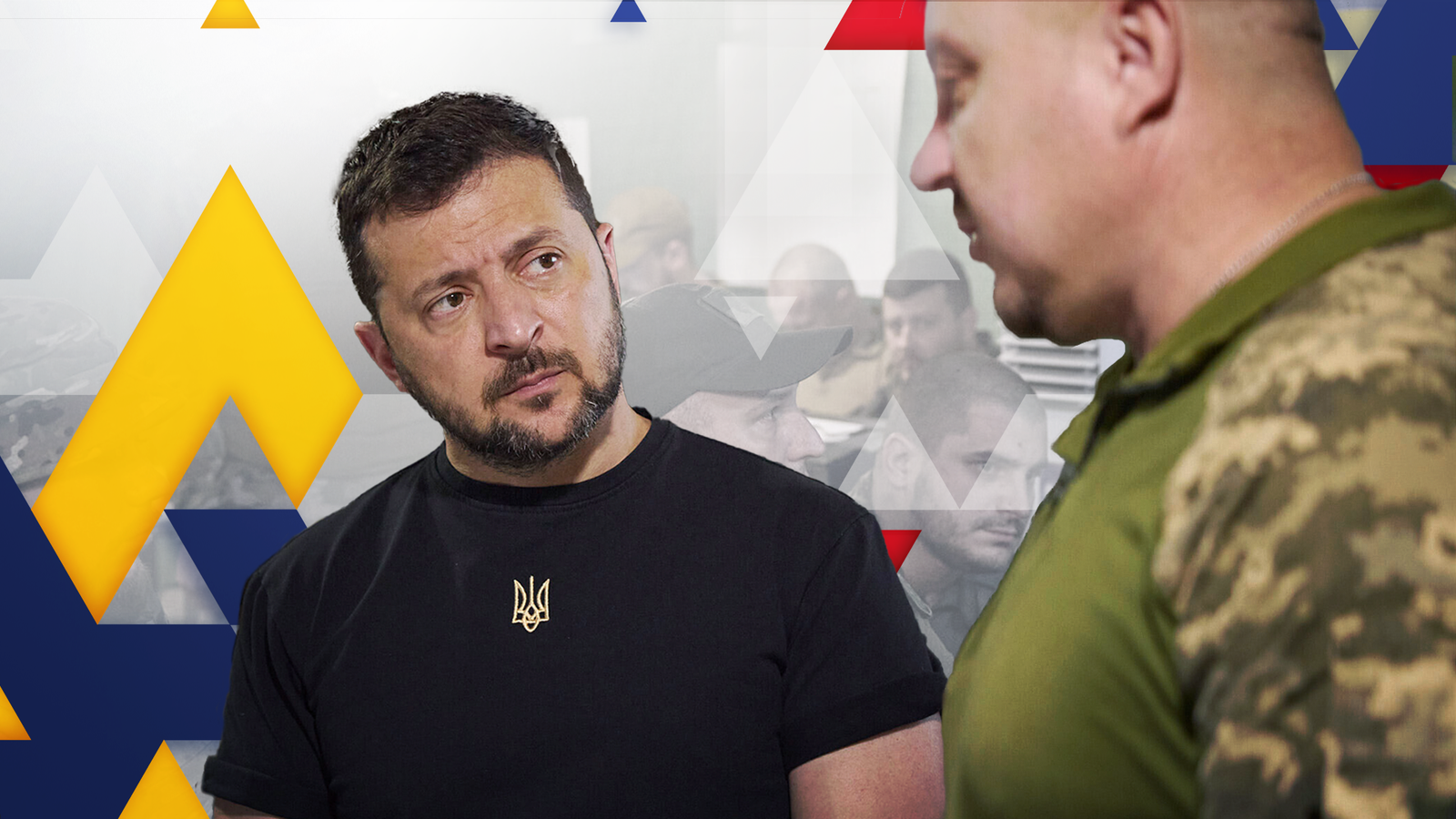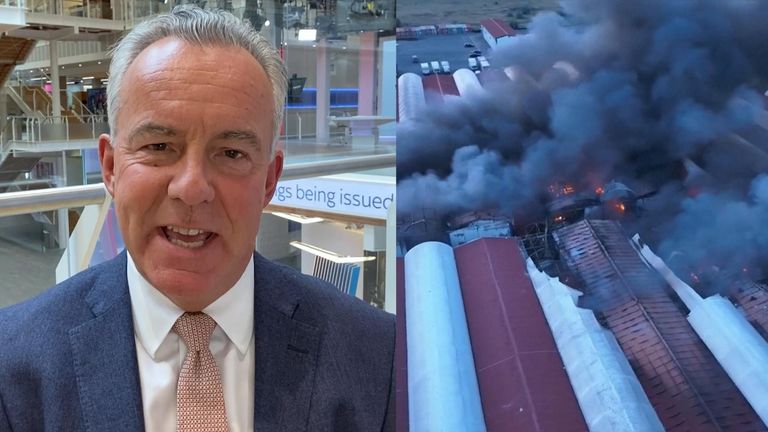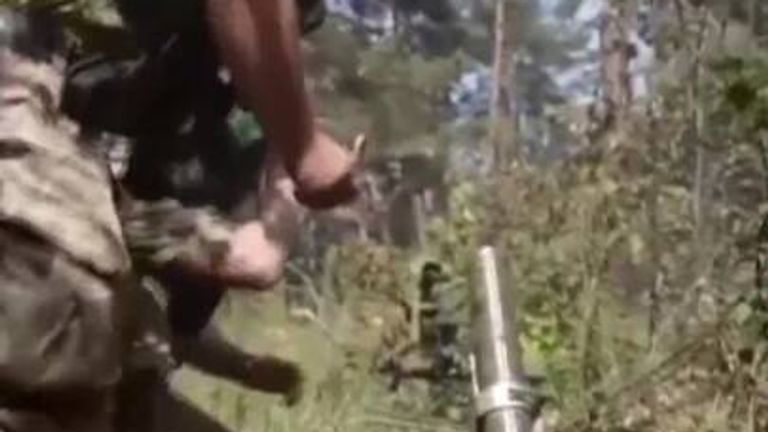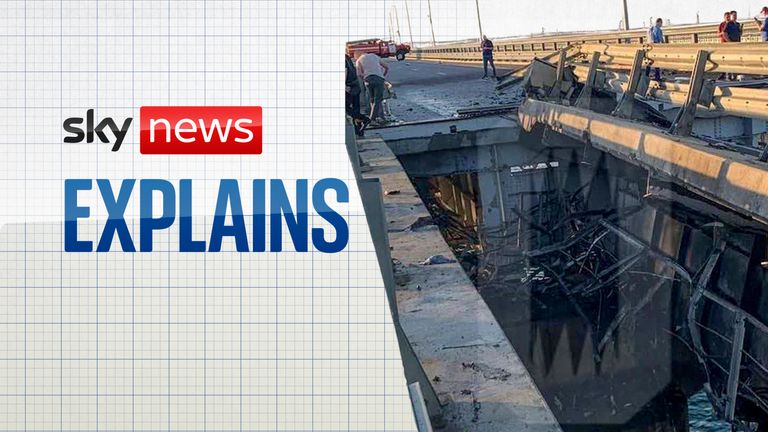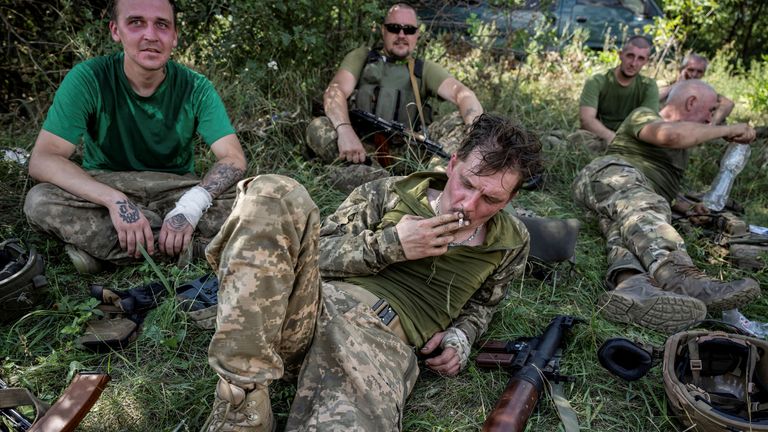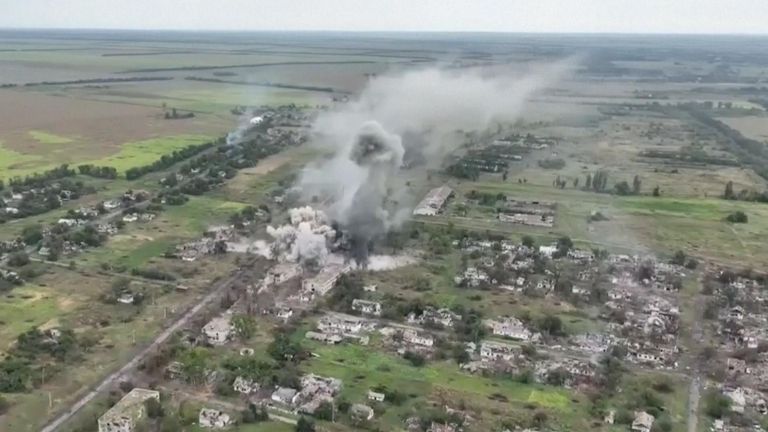Ukraine’s much-anticipated spring counteroffensive is now in its 10th week, with limited evidence of any significant breakthrough of the formidable Russian defences.
President Zelenskyy remains laser-focused on his objective of liberating all Ukrainian territory, but if Ukraine’s military fails to gain momentum in the coming weeks, what next?
In September last year, Ukrainian forces mounted a surprise counteroffensive in northeast Ukraine and liberated 4,600 square miles (12,000 sq km) of territory in a matter of days.
President Zelenskyy argued that he could repeat that initiative on a larger scale with Western support – all he needed was the weapons to do the job.
The West responded by providing an extensive list of advanced military capability, including battle tanks, missiles systems and ammunition.
Read more: Ukraine war latest
However, this all took time to supply and to conduct the requisite training – time that Russia exploited to build extensive layered defensive systems.
Ukraine started its spring offensive in early June, but despite some ferocious fighting the Russian fortifications still appear largely intact.
Although casualty figures are always hard to verify, it is evident that this latest phase of the battle has proven highly attritional, and Ukraine’s offensive would expect to suffer significantly higher casualties, up to three times as many, as its enemy.
Ammunition and weapons are being consumed at a huge rate, and there is no simple way (for either side) to replenish stocks swiftly.
And, notwithstanding the various press releases highlighting drone attacks on Moscow, Black Sea Fleet vessels, ammunition dumps and small communities liberated, these are a sideshow to the main event.
Read more:
Drone hits Moscow building close to Kremlin
Ukraine has set the stage for a new era of war – and AI could supercharge it
The metrics of success for Ukraine are not shells fired, tanks destroyed, or enemy casualties achieved – these are simply the price of conflict, not the objective.
For President Zelenskyy the metric of success is simple – it is territory liberated.
Crucially, if Ukraine was able to push Russian forces back to the Crimean Peninsula, Zelenskyy has stated that this might create an opportunity for negotiation.
But, despite months of rising casualties, progress is slow – very slow.
Reports suggest that Ukraine has started to deploy its main reserve to assist the frontline fight – yet this reserve was intended to exploit any breakthrough to achieve momentum.
Behind the scenes, Western leaders are starting to review options.
NATO Secretary General Jens Stoltenburg’s chief of staff suggested in a recent interview that Ukraine might need to cede territory to find a lasting peace.
Although he later apologised, this comment likely reflected a growing concern among Western leaders that by continuing to support Ukraine they become complicit in perpetuating this brutal – yet static – conflict.
Ukraine’s determination to fight on is understandable – it is, after all, their war – but there is a developing discussion among Western leaders about the future, and what next?
The formal view appears to be that the West stands ready to support President Zelenskyy “whatever it takes”.
But weapons stockpiles are diminishing, and there are limited reserves left to continue supporting Ukraine, especially given conflicting domestic priorities.
Click to subscribe to the Sky News Daily wherever you get your podcasts
In hindsight, Ukraine probably could not have secured a better level of military, financial and economic support for this counteroffensive.
If that does not suffice, what will?
Notwithstanding the public show of NATO and Western unity in support of Ukraine, behind the scenes there is growing concern about how to draw this conflict to an end.
If Ukraine’s military demonstrates that it has the potential to achieve Zelenskyy’s ambition of liberating occupied-Ukraine, it will likely galvanise Western commitment for the longer-term.
However, if Ukraine fails to gain momentum and continues to suffer huge casualties, its allies might feel obliged to explore options.
Such discussions will not be easy – Ukrainians alone understand the sacrifices, hardships and devastation that the Russian invasion has caused.
But, what price peace?
